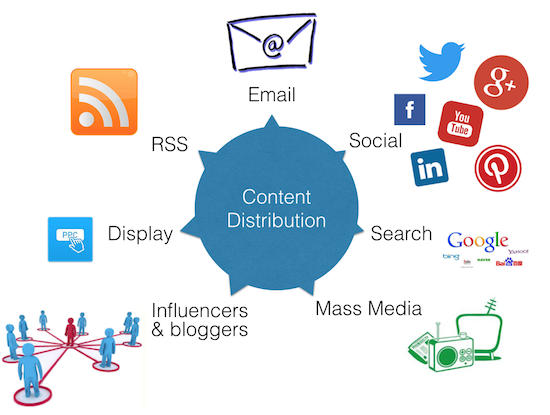Is your company including the essential parts of a marketing strategy? Do you know what to include? Chances are you’re missing some important parts that could help boost your business. Your marketing strategy is your business’s plan to gain new customers and to keep in contact with existing customers. This is essential when growing your small business. Summarized below are the most important bits of information that your business should be adding and targeting. If you are looking for different marketing templates, check out 8 Marketing Plan Templates to Blow Your Competitors Out of the Water.
Marketing Plan Essentials That You Should be Including
1. Identify your Goals

Identifying your goals when embarking on your marketing strategy is the most important part of the marketing strategy. Your goals are what you want to accomplish by performing this plan. These goals should be things that you can realistically accomplish with the budget and time frame you are giving yourself. You can look at what your company needs and then tailor your strategy to better accomplish this. For example, if you are trying to target a younger demographic, try using a more digital advertising campaign over social media. Your goals will evolve throughout the process, and that is just fine! It is important however, to strive toward the same area of growth or target the same people. This way, when you analyze your marketing strategy afterward, you can find out if it was successful or not.
Related: 8 Marketing Plan Templates That Will Blow Your Competitors Out of the Water.
2. Produce Content
In a world obsessed with technology and the Internet, content marketing and just producing content in general are becoming necessities. Your content should be over a wide range of topics to get as many people reading as possible. Your content should also be split up into the Viral, Discover, Consider, and Customer categories I have talked about in previous blogs.
Content is what drives people to your site and is often overlooked when it comes to building your business and getting traffic to your website. Remember, content is essential when embarking on your marketing strategy!
3. Distribute Content

After producing this content, you will have to distribute it. It is a good idea to distribute your content on multiple customer channels. At this point in your marketing strategy, you will have already figured out who you are mostly targeting. You can now look to different channels such as Facebook, Twitter, LinkedIn, email, and your company website. If you are targeting a younger crowd, maybe look towards Facebook. With such advancements in digital advertising, you can directly reach your target market when they search for topics related to your product or company.
4. Analytics

Throughout your marketing strategy you should be analyzing your progress. Google Analytics is a great tool you can use to understand all the incoming data. Google Analytics will provide you details such as average session duration, where the traffic is coming from the most, the demographics of the traffic, and even repeat customers vs. new customers. You can then take this data and see if you are on track to achieve your goal. It will also tell you if your target market is interacting with the content you have produced.
5. Ensure Brand Strength

Think of Nike, Apple, Google, BMW, or Lufthansa. These companies all have one thing in common: fantastic brand strength. They are the forerunners in the industries they compete in and have incredible customer loyalty. When a smaller company is trying to increase its brand strength, it is important to show consistency. This will prove to your customers what you stand for and over time will increase brand loyalty. It is also best to put your brand out as much as possible. Place your logo on all products, in your social media, and anywhere possible. This increases brand awareness and will, in turn, help promote your products.
6. Marketing Strategy Analysis

After exercising your marketing strategy, it is important to analyze your whole process. Start with your goals. Did they stay the same? Did you accomplish them? What data points are you measuring to define success? This should have been stated beforehand. Get your marketing team together and do a quick rundown to see what went well and what could be improved for next time. Your marketing strategy can be remade and remastered to better fit your future goals, but you always need the same basics to get started.

